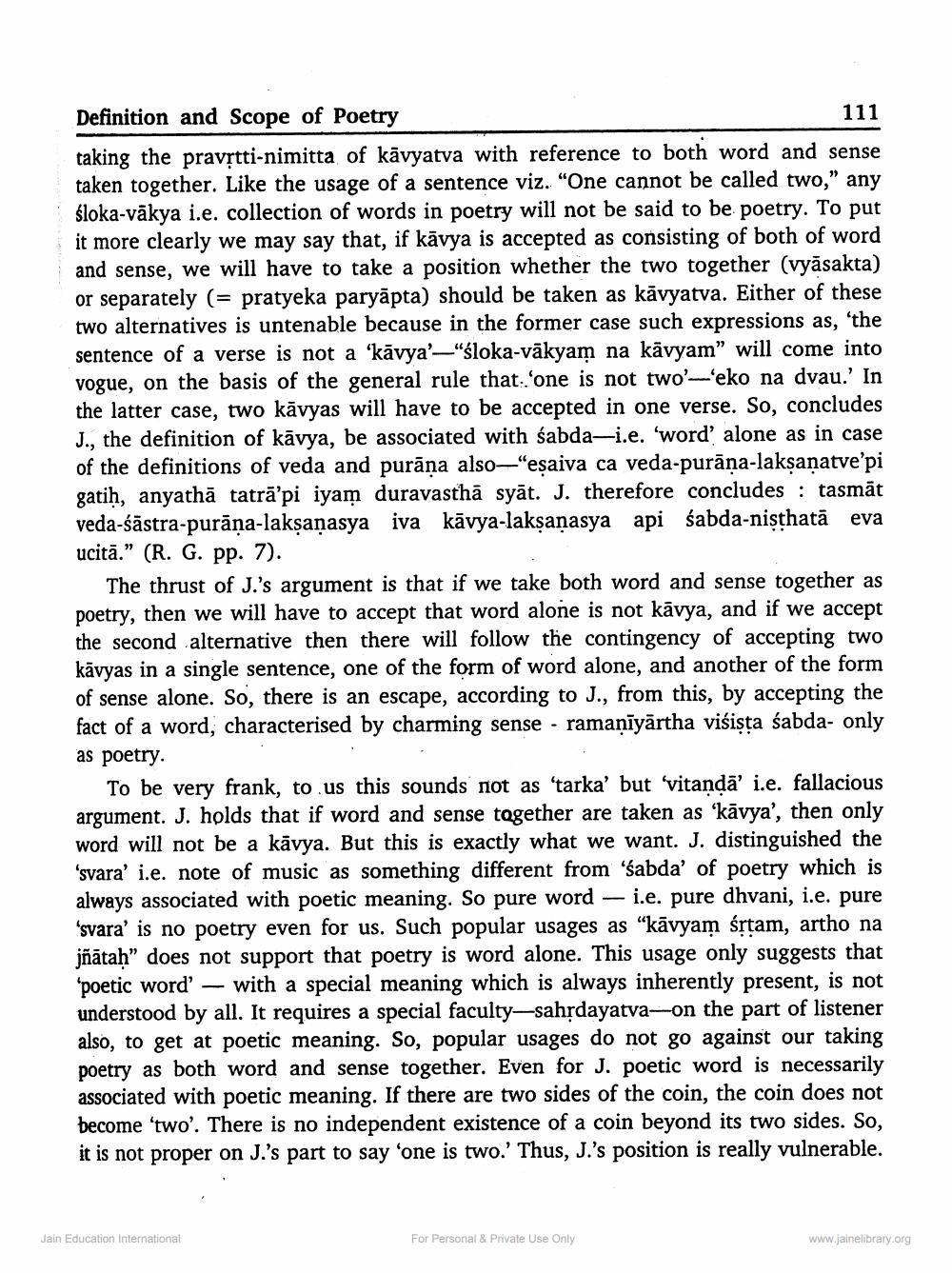________________
Definition and Scope of Poetry
111
taking the pravṛtti-nimitta of kavyatva with reference to both word and sense taken together. Like the usage of a sentence viz. "One cannot be called two," any śloka-vakya i.e. collection of words in poetry will not be said to be poetry. To put it more clearly we may say that, if kavya is accepted as consisting of both of word and sense, we will have to take a position whether the two together (vyāsakta) or separately (= pratyeka paryāpta) should be taken as kavyatva. Either of these two alternatives is untenable because in the former case such expressions as, 'the sentence of a verse is not a 'kāvya'-"śloka-vākyam na kavyam" will come into vogue, on the basis of the general rule that.. 'one is not two'-eko na dvau.' In the latter case, two kavyas will have to be accepted in one verse. So, concludes J., the definition of kavya, be associated with śabda-i.e. 'word' alone as in case of the definitions of veda and purāņa also-"eṣaiva ca veda-purāṇa-lakṣaṇatve'pi gatiḥ, anyathā tatrā'pi iyam duravasthā syāt. J. therefore concludes: tasmāt veda-śāstra-purāṇa-lakṣaṇasya iva kavya-lakṣaṇasya api śabda-nisthatā eva ucită." (R. G. pp. 7).
The thrust of J.'s argument is that if we take both word and sense together as poetry, then we will have to accept that word alone is not kāvya, and if we accept the second alternative then there will follow the contingency of accepting two kavyas in a single sentence, one of the form of word alone, and another of the form of sense alone. So, there is an escape, according to J., from this, by accepting the fact of a word, characterised by charming sense ramaṇīyārtha visiṣṭa śabda- only as poetry.
To be very frank, to us this sounds not as 'tarka' but 'vitaṇḍā' i.e. fallacious argument. J. holds that if word and sense together are taken as 'kāvya', then only word will not be a kavya. But this is exactly what we want. J. distinguished the 'svara' i.e. note of music as something different from 'sabda' of poetry which is always associated with poetic meaning. So pure word i.e. pure dhvani, i.e. pure 'svara' is no poetry even for us. Such popular usages as "kāvyam śṛtam, artho na jñātaḥ" does not support that poetry is word alone. This usage only suggests that 'poetic word' with a special meaning which is always inherently present, is not understood by all. It requires a special faculty-sahṛdayatva-on the part of listener also, to get at poetic meaning. So, popular usages do not go against our taking poetry as both word and sense together. Even for J. poetic word is necessarily associated with poetic meaning. If there are two sides of the coin, the coin does not become 'two'. There is no independent existence of a coin beyond its two sides. So, it is not proper on J.'s part to say 'one is two.' Thus, J.'s position is really vulnerable.
Jain Education International
-
—
For Personal & Private Use Only
www.jainelibrary.org




